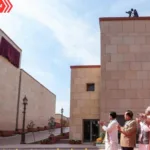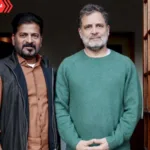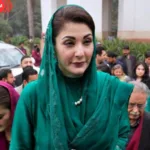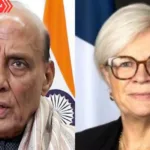Delhi University has long been more than an academic institution—it has served as a crucible for political leadership, activism, and national transformation. At the heart of this legacy lies the Delhi University Students’ Union (DUSU), a platform that has consistently produced leaders who transitioned from campus politics to the corridors of power. From Arun Jaitley’s fiery activism during the Emergency to Rekha Gupta’s historic rise as Delhi’s Chief Minister in 2025, DUSU has shaped the trajectories of some of India’s most influential political figures.
As the 2025 DUSU elections conclude, it’s a fitting moment to revisit the journeys of past presidents who began as student leaders and went on to redefine Indian politics.
—
Prominent DUSU Presidents Who Rose to the Top
| Name | DUSU Tenure | Political Affiliation | Key Positions Held |
|---|---|---|---|
| Arun Jaitley | 1974–75 | ABVP / BJP | Union Finance Minister, BJP Spokesperson |
| Vijay Goel | 1977 | ABVP / BJP | Union Minister of State, Youth Affairs |
| Ajay Maken | 1985 | NSUI / Congress | Union Minister, Delhi Assembly Leader |
| Vijender Gupta | 1984 (VP) | ABVP / BJP | Delhi Assembly Speaker |
| Rekha Gupta | 1996–97 | ABVP / BJP | Delhi Chief Minister (2025) |
Each of these leaders leveraged their student activism to build enduring political careers, often marked by bold reforms, grassroots engagement, and national influence.
—
Arun Jaitley: From Campus Firebrand to Economic Architect
Arun Jaitley’s political journey began in the turbulent 1970s, when he was elected DUSU president amid the JP Movement. His arrest during the Emergency became a defining moment, cementing his reputation as a fearless advocate for democracy. After Delhi University, Jaitley rose through the BJP ranks, serving as Additional Solicitor General, Union Law Minister, and eventually Union Finance Minister. He was instrumental in implementing the Goods and Services Tax (GST), overseeing demonetisation, and merging the railway budget with the Union Budget.
—
Vijay Goel: Protest Politics to Ministerial Power
Vijay Goel’s tenure as DUSU president in 1977 was marked by audacious protests against the Emergency. Known for climbing rooftops with anti-government placards, Goel embodied the spirit of resistance. His later roles included Minister of State for Youth Affairs and Parliamentary Affairs under the Vajpayee government. He also played a key role in Delhi’s Commonwealth Games preparations.
—
Ajay Maken: Congress’s Young Face of Reform
Ajay Maken became DUSU president at just 21, representing Hansraj College. His rapid ascent saw him enter the Delhi Assembly, where he worked closely with Sheila Dikshit’s government on urban reforms, including the landmark CNG transition. At the national level, Maken held portfolios in Urban Development, Home Affairs, and Youth Affairs, becoming one of the youngest Cabinet ministers in UPA II.
—
Vijender Gupta: Persistence Pays Off
Serving as DUSU Vice-President in 1984, Vijender Gupta’s political journey was marked by resilience. After years in municipal politics and multiple electoral defeats, he eventually won a seat in the Delhi Assembly and rose to become Speaker. His career exemplifies how persistence and grassroots engagement can lead to long-term political relevance.
—
Rekha Gupta: Breaking Gender Barriers in Delhi Politics
Rekha Gupta’s election as DUSU president in 1996–97 was a turning point for women in student politics. A Daulat Ram College alumna and ABVP member, she steadily built her career through municipal governance, serving as councillor and mayor. In 2025, she won the Shalimar Bagh seat with a record margin and became Delhi’s Chief Minister—the first woman from DUSU to reach such heights.
—
DUSU as a Political Launchpad: Historical Trends
| Decade | Dominant Party | Notable Leaders |
|---|---|---|
| 1970s | ABVP | Arun Jaitley, Vijay Goel |
| 1980s | NSUI | Ajay Maken, Vijender Gupta |
| 1990s | ABVP | Rekha Gupta |
| 2000s | Mixed | Varun Gandhi (VP), Alka Lamba |
| 2010s | ABVP / NSUI | Rocky Tuseed, Ankiv Baisoya |
| 2020s | ABVP | Rekha Gupta (CM), Tushar Dedha |
The shifting dominance between ABVP and NSUI reflects broader national political trends, with DUSU often serving as a microcosm of India’s electoral mood.
—
Impact of DUSU on National Politics
| Domain | Influence |
|---|---|
| Leadership Grooming | Early exposure to public speaking, policy debates |
| Electoral Strategy | Testing ground for campaign tactics and alliances |
| Youth Mobilization | Building grassroots networks and voter bases |
| Policy Innovation | Incubating ideas on education, urban reform, and governance |
| Gender Representation | Encouraging women’s participation in politics |
DUSU’s legacy goes beyond Delhi University—it has shaped India’s political DNA by nurturing leaders who understand both activism and administration.
—
Conclusion: Delhi University’s Political Legacy Lives On
From Arun Jaitley’s fearless activism to Rekha Gupta’s historic ascent, Delhi University’s student politics has consistently produced leaders who have left indelible marks on India’s governance. As new faces emerge from DUSU’s 2025 elections, the legacy continues—reminding us that the journey from campus to cabinet is not only possible, but often inevitable.
Delhi University remains a proving ground for India’s future leaders, where ideas are tested, voices are raised, and political careers are born.
—
Disclaimer: This article is based on publicly available news reports, verified political biographies, and historical records. It is intended for informational purposes only and does not constitute political endorsement or legal advice. All political developments are subject to change based on electoral outcomes and party decisions.











